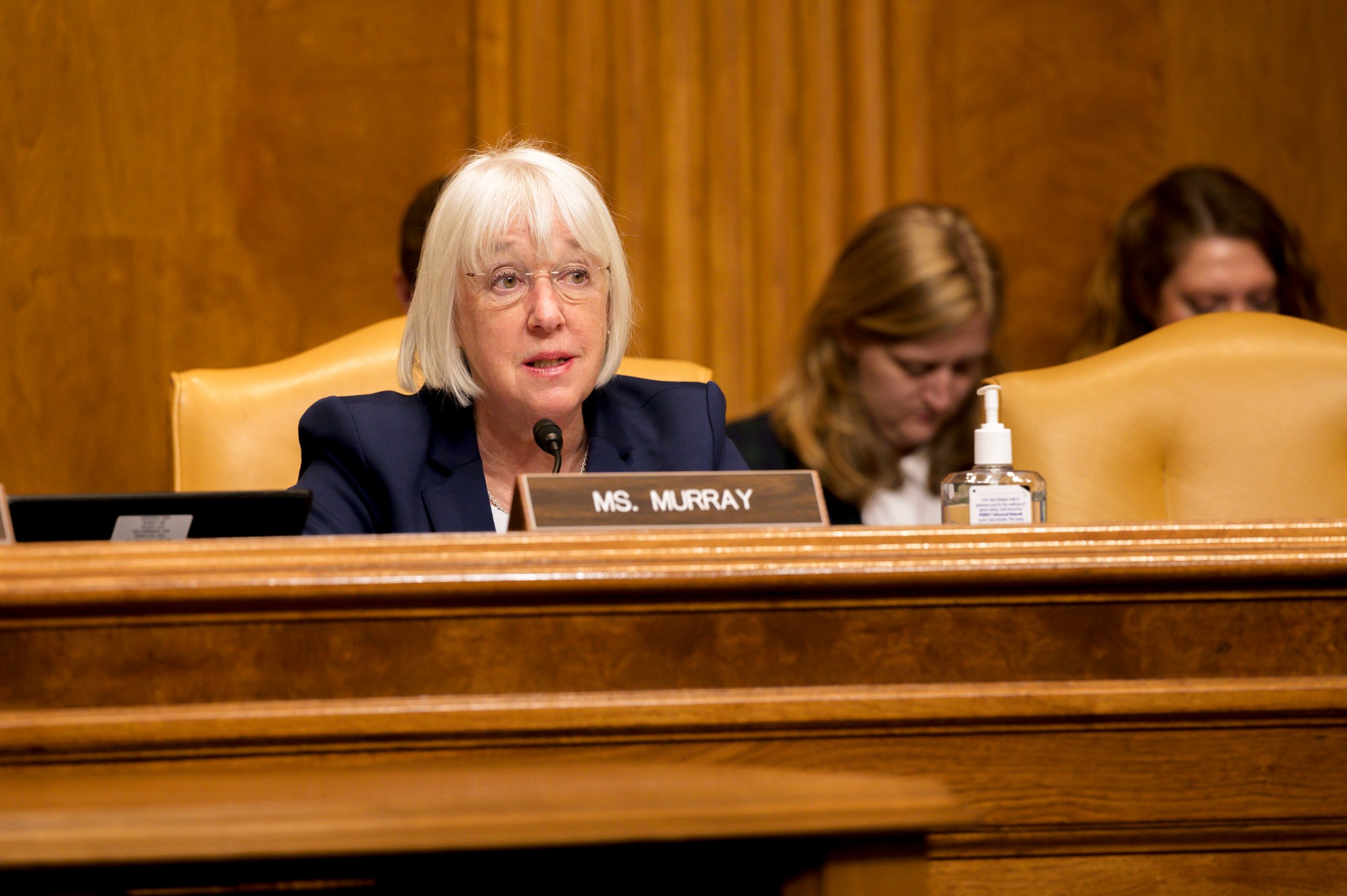***VIDEO of Senator Murray’s at today’s hearing is AQUÍ***
Washington DC – Today, U.S. Senator Patty Murray (D-WA), a senior member and former Chair of the Senate Committee on Veterans’ Affairs, spoke at a Veterans’ Affairs Committee hearing on pending legislation. Considered at the hearing were two bills Senator Murray leads: one that would restructure and strengthen the VA’s Electronic Health Record (EHR) system,which has been plagued with issues from the start,and bipartisan legislation to expand veterans’ options for long-term care.
“I, as you know, have been raising concerns about VA’s implementation of EHR from the start. And when I say start—I mean before the ink was even dry on the contract between Oracle Cerner and the Trump Administration was signed,” Murray dijo en la audiencia de hoy. “And the criteria for success is pretty straightforward to me. Does it work for our providers? Does it work for our patients? Are we helping veterans get the care that they deserve? Which is what I’m focused on when I talk with our veterans back in Spokane and Walla Walla. Unfortunately, it was pretty clear early on that this new system was missing that mark in lots of ways. Whether it is the providers in Spokane who are really burnt out just trying to navigate the broken interface, or the patients who are unable to get the medicine they rely on because of system malfunctions. And as we all know, a flawed system can be fatal—and I have previously discussed here about a constituent of mine who received a late cancer diagnosis because this system didn’t work the way it was supposed to.”
“So, it is painfully, devastatingly, clear to me that this system has been not working for our veterans or our providers, and is broken… We need more than a reset—we need reforms that make sure the problems with EHR are not just fixed, but don’t ever happen again in the future. Many of those problems stem from the deeply flawed, single-source contract the Trump Administration agreed to back in 2018—we should all agree on that. Regardless, we should be doing everything we possibly can to make sure we have a VA where veterans can get the highest quality of care.”
At the hearing, Murray asked the witnesses—officials with prominent Veteran Service Organizations including the Disabled American Veterans (DAV) and Veterans of Foreign Wars (VFW),about what can be done to improve VA’s contracting process. Murray’s EHR Program RESET Act, which she introduced with Chairman Jon Tester (D-MT) and Sherrod Brown (D-OH) in March would require VA to implement a series of EHR reforms to better serve veterans, medical personnel, and taxpayers. Their bill would restructure, enhance, and strengthen the entire EHR program while also mandating aggressive reporting to Congress to increase oversight, accountability, and transparency following a series of challenges with the system and program.
Murray also asked the witnesses about the importance of expanding access to long-term care for veterans, saying, “Our population of veterans is aging, and we have to make sure that there are long-term care options available for them. That’s exactly why I joined Chair Tester and Ranking Member Moran in introducing the bipartisan Expanding Veterans’ Options for Long Term Care Act, creating a pilot program for veterans to get assisted living care… Can you talk a little bit about what some of our veterans are facing in our rural areas in terms of long-term care?”
Meggan Thomas, a witness from the VFW, responded by speaking about how rural areas already have limited access to care,and the pilot program Senator Murray’s legislation would provide critical “middle care” for veterans who are not sick enough to be in a nursing home, but are no longer healthy enough to live independently. Thomas also pointed out—importantly—that it would help veterans get the care they need without having to worry about the financial burden.
Murray’s bipartisan Expanding Veterans’ Options for Long Term Care Act would create a pilot program for eligible veterans to receive assisted living care paid for by VA—allowing aging veterans to live more independently and save taxpayer dollars. The pilot program would be conducted at six Veterans Integrated Services Networks (VISNs) nationwide, including at least two program sites located in rural or highly rural areas and two State Veterans Homes.
###


